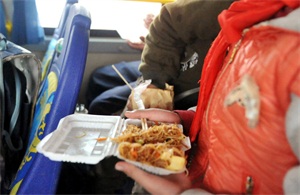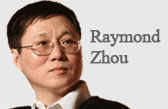Han a hero rebelling against research system?
(China Daily) Updated: 2016-06-01 07:58Wang Shichuan,
a commentator with China Youth Daily, comments:Many media outlets highlight that Han has never published a scientific paper for the past 10 years.
It is understandable that they hope to break the blind worship of such papers, as the current academic administrative system, which judges a researcher on how many papers he or she publishes, is unfair and incomplete.
But these reports easily misguide readers into believing he is a grassroots scholar who made his breakthrough overnight, which is not the case.
Actually, Han has very good academic background: He received his master's degree from the Chinese Academy of Agricultural Sciences, and his PhD from the Chinese Academy of Medical Science, both of which are top institutions of China.
Some claim that his laboratory is badly equipped and he was not given ample funds, which is not true, either. To quote his own words, "conditions here are not the top, but they are good enough to support our daily research". And the university has given him about 400,000 yuan ($60,754) in funding, which is enough to support the lab.
Even the widely quoted "without a paper for 10 years" is not exactly true because he published two Chinese papers as correspondence author.
Of course, Han enjoyed a quite free academic atmosphere, but that's not the only path that led to his success. His own academic ability, his excellent team, even his strong personal will, all played major roles in the road towards success.
Since graduation, Han has constantly conducted research on genetic science and he has kept in contact with top gene scientists in order not to fall behind. He is hardworking-he even sleeps in the lab for days in order to monitor the results of an experiment. And he has excellent team members, including post-doctorates from Emory University.
Thus Han is neither a miracle nor a hero rebelling against the current academic administrative system. He works hard, is smart, and has chosen the right path-that's why he has been successful.

I’ve lived in China for quite a considerable time including my graduate school years, travelled and worked in a few cities and still choose my destination taking into consideration the density of smog or PM2.5 particulate matter in the region.











